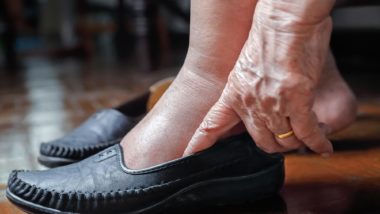Top Class Actions’s website and social media posts use affiliate links. If you make a purchase using such links, we may receive a commission, but it will not result in any additional charges to you. Please review our Affiliate Link Disclosure for more information.
Using any medication carries the possibility of complications with other drugs or even side effects. However, as more people claim that long-term use of Actos could cause bladder cancer, it’s important for patients thinking about taking this diabetes drug to be fully informed about the possible risks to determine whether Actos is safe to use.
Who Uses Actos?
Actos (also known by its generic name, pioglitazone) is intended for adult patients with a type-2 diabetes diagnosis. This is often recommended for those patients who are not able to control their blood sugar levels with exercise or diet alone. In conjunction with exercise and a balanced diet, Actos can be effective at managing diabetes, helping prevent patients from developing a slew of problems like kidney damage, blindness, nerve problems, loss of limbs, and more.
Actos is manufactured by Takeda Pharmaceuticals, and was approved by the U.S. Food and Drug Administration (FDA) back in 1999.
Certain patients are warned about the dangers of Actos. These include those in a state of diabetic ketoacidosis, those with liver issues, someone who already has bladder cancer, anyone with an eye problem caused by diabetes, and those allergic to ingredients inside the drug itself.
What is the Bladder Cancer Risk with Actos?
According to research shared in the British Medical Journal, there are concerns about whether Actos is safe to use. One study published in the May 2012 version of that journal shows that those patients using Actos for longer than 12 months might face a heightened risk of bladder cancer by as much as 83 percent.
In 2011, the FDA added a warning label to pioglitazone about the potential risk of developing bladder cancer, and continued to review the medication.
The FDA reportedly completed an additional review of the data for the Actos cancer risk and reaffirmed at that point in 2016 that the drug could increase a person’s chances of developing bladder cancer, especially when the drug was used for a long period of time.
Bladder cancer is one of the more common cancers—indeed, approximately 68,000 U.S. adults are diagnosed with bladder cancer each year. Fortunately, this particular type of cancer is often diagnosed early on, when it is more treatable. However, bladder cancer is also commonly recurring, so patients can require follow-up tests for years afterward.
What Are the Side Effects of Actos?
In determining whether Actos is safe to use, a doctor will evaluate the patient’s individual history and the likelihood of interactions with other drugs. Serious side effects could impact a patient’s overall health and should be reported to the prescribing physician immediately.
While bladder cancer may be a long term side effect of Actos, other issues may include edema, upper respiratory tract infections, and hypoglycemia. Some Actos side effects that may carry serious consequences can include bone fractures, cardiac or congestive heart failure, and pharyngitis.
How Do I Know if I Might Have Bladder Cancer?
Side effects that should prompt a patient to schedule a doctor’s appointment include red or blood in the urine, pain when urinating, or a worsening urge to urinate. These could be early indications that the patient already has bladder cancer.
A doctor can complete additional screening to determine if the patient does indeed have this diagnosis. Anyone who has been taking Actos for a long time at a high dose is most likely to be affected by a bladder cancer diagnosis, so any patient in this situation should monitor their overall health regularly.
Some patients might show all the classic signs of bladder cancer, whereas others will show no signs at all. Anyone who is concerned about a possible bladder cancer diagnosis should consult with their physician for more information about deciding whether to undergo screening for cancer.
Patients can also present some of these signs and have that related to another medical condition and not cancer. Due to the complexity of determining the impact of Actos, anyone taking the drug who has urinary issues should be proactive about reporting changes in their health to their doctor.
Are There Any Lawsuits or Bans Concerning Actos?

Additionally, more than 8,000 lawsuits have been filed in federal and state courts against Takeda regarding Actos. Many of the plaintiffs who have filed cases against the manufacturer claim that Takeda knew about and hid the risks associated with Actos.
One Actos trial from 2014 resulted in an initial settlement order of $9 billion in punitive damages. Although this amount was later reduced to around $37 million, victims who have been diagnosed with bladder cancer after taking Actos may still be able to recover compensation for their injuries and suffering.
Takeda has reportedly settled multiple lawsuits regarding Actos and the drug’s link to bladder cancer. The company claims that these settlements do not indicate any guilt and still stands behind the diabetes drug.
In 2017, Takeda announced that the company would take a $2.7 billion charge against earnings in order to cover the costs of settlements and litigation for the several thousand cases still pending against the company. Victims who have suffered from bladder cancer after taking Actos may be able to join or file their own class action lawsuit and collect compensation from Takeda for their medical bills, injuries, suffering, and other damages.
Filing an Actos Lawsuit
If you or someone you love has suffered from side effects of Actos, including bladder cancer, you may be able to file a lawsuit and pursue compensation. Of course, filing a lawsuit cannot undo the pain and suffering caused by these kinds of side effects, nor can it bring a loved one back to life, but it can at least help to alleviate the financial burden incurred by medical expenses, lost wages, and more.
Filing a lawsuit can be a daunting prospect, especially in the wake of serious side effects like bladder cancer, so Top Class Actions has laid the groundwork for you by connecting you with an experienced attorney. Consulting an attorney can help you determine if you have a claim, navigate the complexities of litigation, and maximize your potential compensation.
Join a Free Actos Lawsuit Investigation
If you or a loved one took Actos and developed bladder cancer, you may qualify to file an Actos lawsuit and for an Actos settlement. Join this Actos lawsuit investigation by filling out the FREE form on this page.
ATTORNEY ADVERTISING
Top Class Actions is a Proud Member of the American Bar Association
LEGAL INFORMATION IS NOT LEGAL ADVICE
Top Class Actions Legal Statement
©2008 – 2024 Top Class Actions® LLC
Various Trademarks held by their respective owners
This website is not intended for viewing or usage by European Union citizens.
Get Help – It’s Free
Join a Free Actos Lawsuit Investigation
If you qualify, an attorney will contact you to discuss the details of your potential case at no charge to you.
PLEASE NOTE: If you want to participate in this investigation, it is imperative that you reply to the law firm if they call or email you. Failing to do so may result in you not getting signed up as a client or getting you dropped as a client.
Oops! We could not locate your form.













